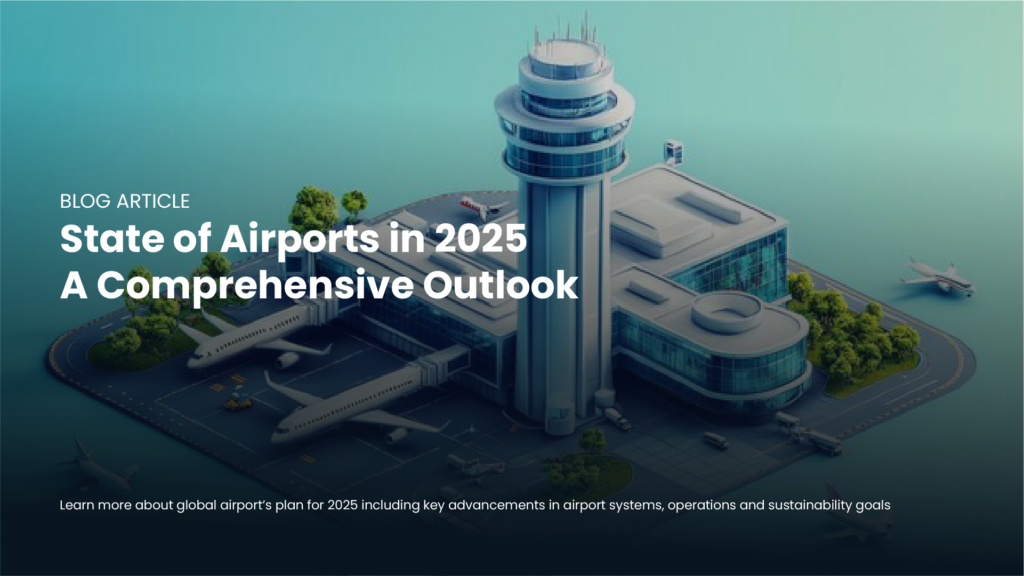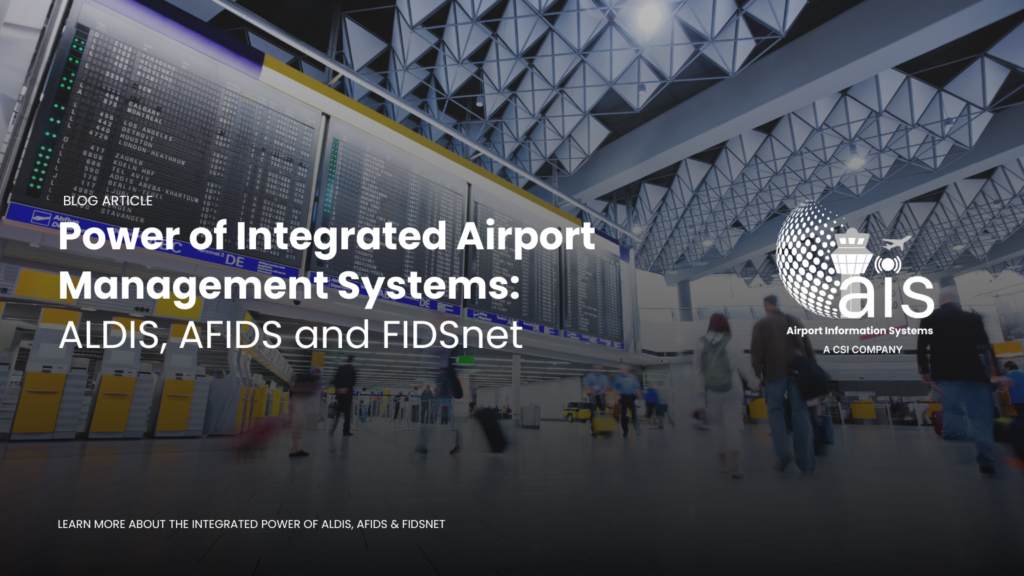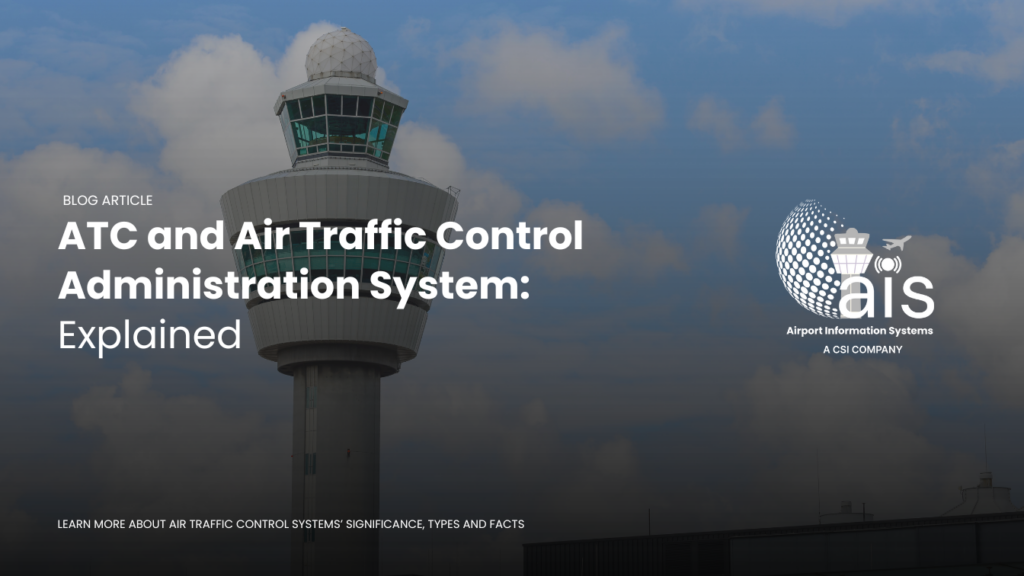According to IATA, air travel is expected to double by 2040. With this, the need for technological integration and resource management are increasing. The aviation industry is undergoing significant changes, driven by digital transformation and a commitment to sustainability. As we approach 2025, airports are moving to renewable energy, embracing automation and security frameworks to increase efficient operations and optimise passenger experiences.
The Evolution of Airport Operations
The past few years have seen remarkable progress in airport operations, particularly in 2024. From virtual assistants to baggage handling, airports have been working around the clock to make improvements in efficiency and sustainability.
Biometric Identification
Airports are adopting biometric identification in airport processes. According to the International Air Transport Association (IATA), 46 percent of passengers experienced biometric identification during airport processes. This shift streamlines passenger flow and enhances security measures.
Sustainability Milestones
The pressing situation of climate challenge drives airports to incorporate sustainable practices. Several airports have achieved carbon-neutral status in 2024, under the Airport Carbon Accreditation (ACA) program of Airport Council International’s (ACI). Delhi International Airport, for example, became the first airport in Asia to achieve Level 5 certification for Net Zero Carbon Emission Airport status. With a 7.84 MW solar power plant installed in the airport, it functions entirely on renewable energy, eliminating 2 lakh tonnes CO2 yearly.
AI Integration Strategy
The UK Civil Aviation Authority proposed a strategy for AI-driven systems to increase operational efficiency. Using AI for real-time data and predictive modeling, adaptive simulations for better pilot training, streamline booking, check-ins, and boarding, and optimize fuel efficiency with smarter routing.
These developments reflect the airports’ commitments to energy management, and technology integration in the global aviation landscape, setting a benchmark in operational excellence.
Airport Digital Initiatives for 2025
Airports are embracing internet enabled connected devices, and cybersecurity frameworks to improve customer experience, secure passenger data, and prevent cyber threats. This includes:
IoT-Enabled Smart Airports
The Internet of Things (IoT) is revolutionising airport management by enabling real-time monitoring of various operational aspects. According to research published in ICECA, IoT applications have the potential to ease baggage tracking and passenger flow management at smart airports. This allows airport managers to respond quickly to changing conditions and improve Airport Customer Experience.
CAA’s Cybersecurity Measures
Airports heavily rely on digital systems now, making cybersecurity their prime aspect. The European Union Aviation Safety Agency’s, the UK basic regulation covers air operations, airport operations, aerodromes, air traffic management, and air navigation services, to protect sensitive data and ensure operational integrity. Further, CAA is working with the Department of Transport to implement cybersecurity measures for Information Security Management Systems.
Unmanned Ground Handling
Automation is set to transform ground handling processes at airports. For instance, Heathrow airport made a pivotal step in implementing autonomous vehicles that travel 1300 km through live airport traffic. This advancement enhances efficiency and allows staff to focus on more critical tasks.
These digital transformation initiatives will help airports maintain high safety standards, ensure seamless operations, and contribute to cost optimisation.
Strategic Goals for Airports in 2025
Airports are working towards achieving “Safe Skies, Sustainable Future” proposed by The International Civil Aviation Organization (ICAO). The strategic goals include carbon neutral emission, connected, accessible, and inclusive transport systems.
Commitment to Sustainability
UK airports are committed to achieving carbon-neutral goals through adopting Sustainable Aviation Fuels (SAF) and investing in energy-efficient infrastructure. The UK government has mandated that 2% of fuel for all flights taking off in 2025 comes from sustainable sources. For instance, Heathrow airport has reduced its fuel carbon emission by 90 percent through SAF.
Passenger Experience
Airports are focusing on personalized services to enhance the travel experience. A study from AeroCloud reveals that 55% of passengers prefer airports that offer a better passenger experience. Passengers are willing to spend quality time with their families in airports that offer play areas, entertainment options, and priority check-ins.
Collaborative Government Support
The UK government plays a crucial role in supporting airport initiatives through funding and policy development. Recent collaborations have focused on modernising air traffic control systems and have committed £9.2m in funding. The UK government’s investments in legacy modernisation go hand in hand with sustainability goals, and therefore, this partnership is important in achieving synergic objectives in the aviation sector.
Advancements in Airport Systems for 2025
The rapid advancements in airport systems focuses on seamless communication and minimising downtimes. Airports are integrating predictive maintenance systems, 5G connectivity, and real-time information systems for this purpose.
Intuitive, Real-Time Information Systems
The Improved Information Systems will undergo significant upgrades, featuring improved user interfaces and enhanced integration capabilities with other airport systems, providing live updates from flight status to gate assignments. These updates will provide real-time data insights that facilitate better decision-making processes across airport operations.
Implementation of 5G Technology
The rollout of 5G technology at airports in 2025 will enable faster data exchange and improved communication across all operational layers. According to a report by Ericsson, 5G connectivity can enhance various applications, from real-time passenger information systems to advanced baggage tracking solutions. 5G connectivity can reduce ground-related delays in airports, saving 100 Euros per minute.
Automated Predictive Maintenance
Predictive maintenance systems leveraging automated maintenance reporting systems and E-log platforms are expected to become increasingly common at airports. These technologies allow proactive identification of equipment issues before they lead to downtime, ensuring continuous operations. A report from British Airways’ states these systems would save 900,000 pieces of paper annually.
These advancements are designed to address the complexities of modern airport management and are promising in leveraging the existing features through versatile integration.
Conclusion: A Promising Future for Airports
The state of airports in 2025 reflects a new transformative change for the industry, characterised by technological innovations and a renewed emphasis on sustainable practice with enhanced passenger orientation.
Advances from biometric identification to AI-driven operation and IoT-enabled systems make process execution more efficient, ensuring increased safety while enhancing traveler satisfaction.
A strong commitment to sustainability, be it renewable energy usage and adoption or sustainable aviation fuels, thereby sets standards across the world for “eco-friendly” operations for airports.
A strong commitment to sustainability sets standards across the world for “eco-friendly” operations for airports. Be it renewable energy usage and adoption, or sustainable aviation fuels. In advancing such systems, global airports are not only achieving strategic goals but redefining the future of air travel.
Ready to modernise your airport operations?


